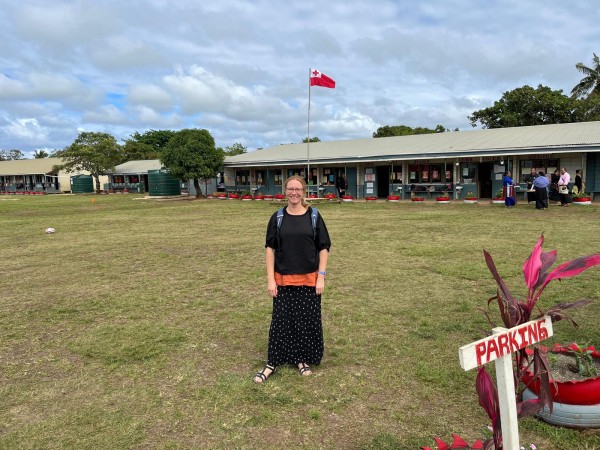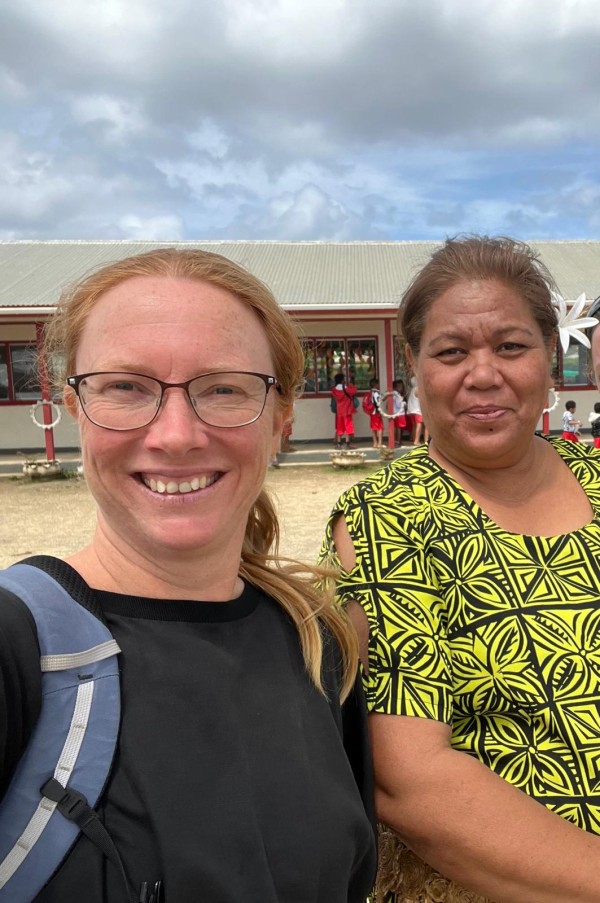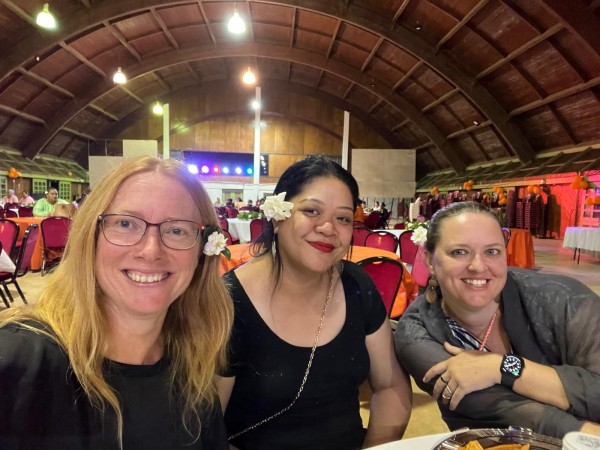Rebecca Anderson-Griffith had been working in deaf education for 20+ years in Aotearoa when she decided to apply her skills in Tonga. She had also been involved in local volunteering efforts at home for a while, most recently helping to resettle a refugee family at Red Cross, and was eager to help others in a different context. ‘I wanted to use my 20+ years of knowledge and skills in NZ deaf education to support a developing Pacific country and empower locals toward change within inclusive education there,’ explains Rebecca, who is deaf herself. ‘It seemed like an opportunity to be able to empower others, as well as challenge myself.’
She signed on for a 12-month volunteering assignment as a Sign Language Teacher with the Ministry of Education and Training in Tonga, three months in-country followed by nine months e-volunteering from Aotearoa. Her role, as she describes it, was ‘incredibly varied’. Within the Ministry, education advisors work with teachers in inclusive education classrooms and also with some students in mainstream classrooms too.

Rebecca outside a government primary school in Nuku'alofa.
Day to day, Rebecca spent a lot of time in inclusive education classrooms in Nuku’alofa, which contained a range of special needs. ‘I worked alongside a couple of teachers, teaching a group of five deaf students,’ she says. ‘I modelled teaching strategies in NZSL, demonstrating new vocabulary, sentence structures and visual ways of working, such as using objects, to support student literacy development.’ Towards the end of her time in-country, Rebecca also visited a couple of government schools with an education advisor and worked alongside her to model support strategies required for hearing-impaired and deaf students to learn in mainstream classes.
It’s hard to choose just a few highlights from the volunteering experience, but she says a definite standout was helping to transition a blind student from an inclusive education unit into a mainstream school – one with high academic standards and a high level of English spoken in the curriculum.
‘To be able to talk with the people of the school and class teacher and help to transition this blind student was really incredible,’ says Rebecca. ‘And she’s still there and they’re doing really well. I think just helping those at the school to see past that disability, to recognise how intellectual and capable she was, and to get the school to give her a chance with good support systems in place – that was very meaningful.’

Rebecca with her colleague Aki, who works with vision-impaired children in Nuku'alofa.
The Ministry of Education in Tonga is working hard to ensure that all children, including those with diverse learning needs, have access to quality education in the Kingdom. Tonga has taken part in the Pacific Regional Inclusive Education Review conducted by UNICEF Pacific, designed to advance understanding of inclusive education. It is one of five countries who are part of the five-year MFAT funded Deaf Education Project – improving access to education and quality of learning for deaf children and young people in the Pacific.
Tonga is also one of the five Pacific countries involved in the Tupu Programme – targeting school leaders, teachers and teacher aides to create an enabling, supportive and inclusive environment for teaching and learning that caters to the needs of children.

Rebecca at one of her partner organisation's functions, with colleagues Alisi (centre) and Claire (right).
Rebecca is pleased to have been able to help support inclusive education in Tonga and identifies the area as one for further development in future. One of her main recommendations upon finishing her assignment was to have more support in place – such as local sign interpreters – before more hearing-impaired or deaf students went into mainstream schools. She looks forward to seeing inclusive education develop further in Tonga, with more widespread support for students.
Rebecca was thrilled to be able to volunteer and hopes her work has made a difference locally. Ka pai, Rebecca!
